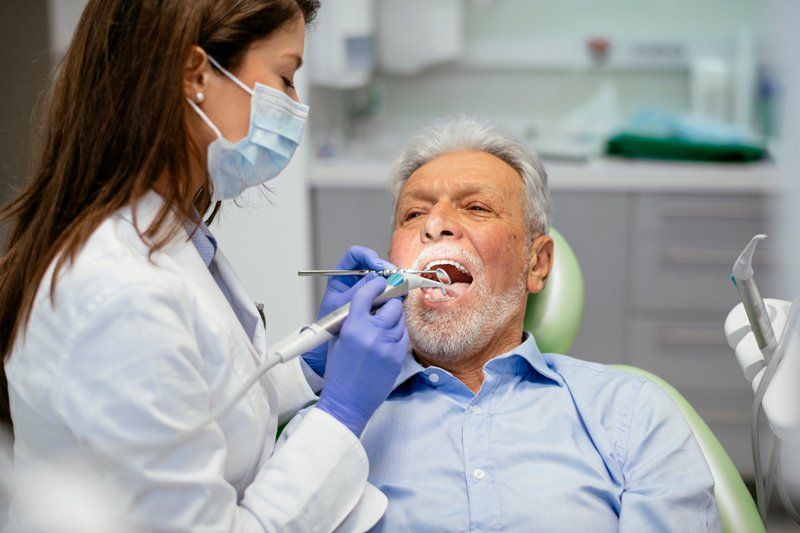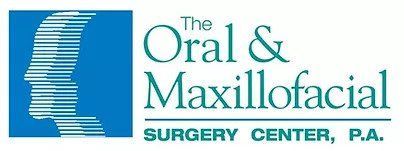Oral & Maxillofacial Surgery Center
P.A.’s
Patient Information
Read the following information before your surgery at Oral & Maxillofacial Surgery Center P.A. of Hattiesburg, MS.

First Appointment
Your first appointment at The Oral & Maxillofacial Surgery Center will be a consultation where Dr. Thames or Dr. Alexander will discuss treatment options. There may be some cases where surgery can be performed on the same day as your consultation. A referral is not required for an appointment. If you have been referred to our office, please bring a copy of the referral and x-rays, if provided by your dentist.
Bring to first appointment
- Dentist referral and X-rays (if provided by referring dentist)
- List of current medications
- Medical and Dental Insurance information
Financial
Payment is due on the date of service. We accept cash, check, and credit cards (American Express, Discover, MasterCard and Visa). We also offer no interest payment plans through Care Credit. You can apply online at www.carecredit.com or in our office to see if you qualify. If you have insurance, please bring your medical and dental insurance to your first appointment and we will file to your insurance company. We do not accept Medicare or Medicaid. You will receive monthly statements. Any balance remaining after insurance pays will be your responsibility. If you have questions regarding your statement, please contact our office.
The Oral and Maxillofacial Surgery Center is now offering financing for through Cherry.
To apply for financing with Cherry, please click the link below:
Pre-Surgical Instructions
- Do not eat or drink anything other than sips of water with prescribed medications for 8 hours prior to your appointment.
- A responsible adult must accompany the patient to the office, remain in the office during the procedure, and drive the patient home.
- Please wear loose fitting clothing with sleeves which can be rolled up past the elbow.
- Do not wear lipstick, excessive makeup, or nail polish on the day of surgery.
- If you have an illness such as a cold/flu, sore throat, or nausea/vomiting, please notify the office prior to your appointment.
- Take all routine medications unless otherwise directed by Drs. Thames or Alexander. Please call prior to your appointment if you have any questions.
Patient information & forms
Post-Surgical Instructions
Post-operative care is very important. Unnecessary pain and complications, such as infection, can be minimized if these instructions are followed carefully.
Immediately Following Surgery
- The gauze pad placed over the surgical area should be kept in place for a half hour. After this time, the gauze should be removed.
- Vigorous mouth rinsing should be avoided. This may initiate bleeding by causing the blood clot that has formed be become dislodged.
- Take the prescribed pain medications before the numbness begins to wear off. Drinking liquids prior to taking the pain medication may help prevent nausea.
- Restrict your activities the day of the surgery and resume normal activity when you feel comfortable.
- Place ice packs to the side of your face where the surgery was performed. Refer to the section on swelling for a more thorough explanation.
Bleeding
A certain amount of bleeding is to be expected following surgery. Slight bleeding, oozing, or redness in the saliva is not uncommon. Excessing bleeding may be controlled by first rinsing or wiping any visible blood clots from the are of bleeding, then place a gauze pad over the area and bite firmly for thirty minutes. Repeat if necessary. Resting with your head elevated will also help with bleeding. If the bleeding still does not subside, call our after-hours contact number for further instructions.
Pain
Pain following your surgery will typically be most severe when the numbness begins to wear off. You should take the prescribed pain medication as soon as you get your prescriptions filled. Follow dosing instructions carefully. Do not drive or operate machinery while taking prescription pain medication. If pain is not well controlled and you are able to take ibuprofen, 600mg of ibuprofen (3 tablets) can be taken every 6 hours along with your prescription pain medication. Discomfort following surgery will typically begin to dissipate after the third postoperative day. If pain continues or is not well controlled, you should contact our office.
Diet
It is recommended that your diet be restricted to liquids only immediately after IV sedation or general anesthesia. Once the effects of the anesthesia have worn off it is okay to begin eating soft foods by eating in the unaffected areas. Avoid any hot foods while your mouth is still numb. It is best to avoid straws as suction from the straw could dislodge the blood clot. A high calorie, high protein diet is important. Your food intake will be limited for the first few days. You should compensate for this by increasing your fluid intake. Try not to miss meals. You will feel better, have more strength, tolerate medications better, and heal faster if you eat regularly.
Nausea and Vomiting
In the event of post-operative nausea/vomiting following surgery, do not eat or drink anything for approximately an hour. Then begin sipping cold Coca-Cola or ginger ale. If symptoms persist call for further instructions.
Tobacco
Use You should refrain from all tobacco use for one week following surgery. Tobacco use delays healing and could contribute to post-operative pain and complications.
Antibiotics
If prescribed antibiotics following your procedure, take medication as directed and until completed. Discontinue only in the event of a rash/allergic reaction, or other reaction such as severe diarrhea. Notify our office if such a reaction occurs.
Swelling or Bruising
Swelling or bruising is often a normal part of the recovery process following surgery. This will often not be noticed until the day following surgery and will not reach its maximum until 2-3 days post-operatively. Ice packs to the affected areas and keeping your head elevated will help minimize swelling. Ice can be used for the first 48 hours, this can be changed to moist heat after the first two days. If swelling worsens after the first 3-4 days following surgery, call our office for evaluation.
Keeping Your Mouth Clean
You should avoid rinsing your mouth until the day following surgery. The day following surgery begin rinsing with any prescribed mouth rinses two-three times a day. Avoid eating or drinking for 30 minutes after prescription mouth rinses. Warm saline rinses can also be used as desired after the first day. Avoid brushing around surgical sites for the first three days, then begin brushing very gently.
Finally
- Stitches placed as part of your surgery are dissolvable and may come out prematurely, even as early as the first day following surgery. Do not be alarmed, this should not affect your recovery.
- There will be a void where the tooth was removed. The void will fill in with new tissue gradually over the next month. In the meantime, the area should be kept clean with mouth rinses or irrigation (if demonstrated).
- Your lips may be dry following surgery, your lips should be kept moist with an ointment such as Vaseline.
- Difficulty with opening your mouth widely after surgery is not uncommon. This should improve after the first few days following surgery.
- We appreciate you choosing our office to help you with your needs and will be happy to help you through your recovery process. If you have any additional questions or concerns please call and we will be happy to help you any way we can.
Give us a call if you have any other questions or concerns before your procedure.
Browse Our Website
Contact Information
Address: 6284 US Highway 98, Hattiesburg, MS 39402
Phone: (601) 271-2356
Email: oralandmax2@thamesoms.com
Fax: (601) 271-2374
Address: 325 South 13th Avenue, Laurel, MS 39440
Phone: (601) 425-2356
Email: oralandmax1@thamesoms.com
Fax: (601) 426-9038
Contact Information
Address: 6284 US Highway 98, Hattiesburg, MS 39402
Phone: (601) 271-2356
Email: oralandmax2@thamesoms.com
Fax: (601) 271-2374
Address: 325 South 13th Avenue, Laurel, MS 39440
Phone: (601) 425-2356
Email: oralandmax1@thamesoms.com
Fax: (601) 426-9038










